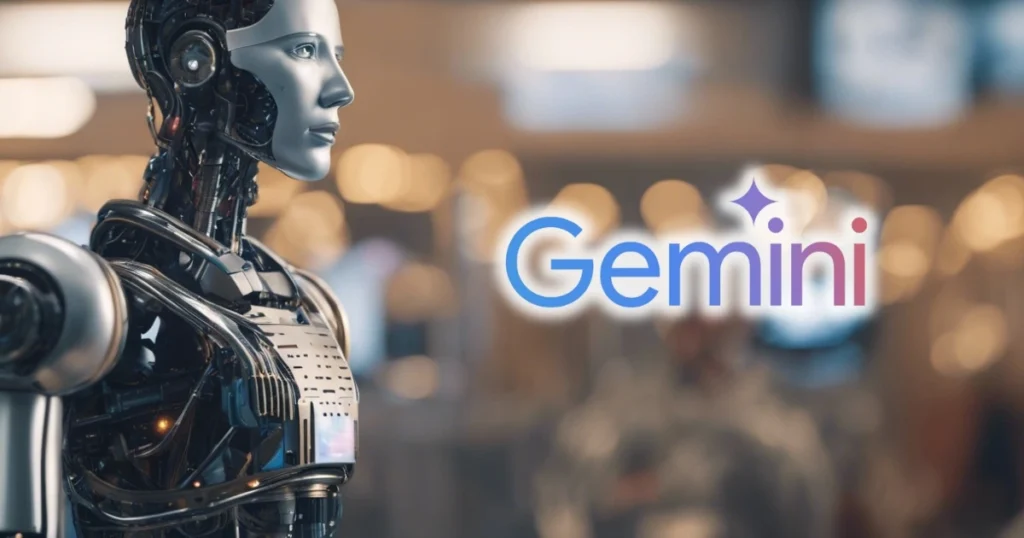How Google’s AI is Changing Search and Everyday Life
Google’s artificial intelligence (AI) technology is at the forefront of transforming how we search for information and interact with the digital world. The year 2024 marks a significant milestone in the evolution of Google AI, showcasing advancements that are not only redefining search engine capabilities but also influencing various facets of daily life. This article delves into the trends and developments surrounding Google AI in 2024, highlighting its impact on search functionalities, user experience, and broader societal implications.

Google AI 2024: An Overview
Google’s commitment to integrating AI into its search engine and various services has been a game-changer. In 2024, the company’s AI technology has become more sophisticated, with improvements in natural language processing (NLP), machine learning algorithms, and user interface design. These enhancements enable Google to offer a more intuitive, personalized, and efficient search experience.

Key Developments in Google AI
- Advanced NLP Techniques: Google’s AI now understands the context and nuances of search queries more accurately, providing more relevant and precise search results.
- Improved Personalization: Machine learning algorithms analyze users’ search history, preferences, and behavior to tailor search results and recommendations.
- Voice and Visual Search: Enhanced AI capabilities have made voice and visual search more accurate and user-friendly, broadening the ways users can interact with Google search.
- AI-driven Content Creation: Google’s AI can generate informative summaries and content for users, making information consumption more efficient.
Impact on Search Experience
Enhanced Accuracy and Relevance of Search Results
The advancements in Google’s AI technology have dramatically improved the accuracy and relevance of search results. Users can now find what they’re looking for with fewer queries, thanks to the AI’s deep understanding of language and context. This not only saves time but also enhances the overall search experience by reducing frustration and increasing satisfaction.
Personalized Search Journeys
Google AI in 2024 has taken personalization to new heights. By analyzing vast amounts of data on user preferences and behaviors, Google can offer personalized search results and content recommendations. This means that two people searching for the same term might receive different results tailored to their individual interests and past interactions, making the search experience more relevant and engaging.
Integration of Voice and Visual Search
Voice and visual search capabilities have become more prominent, thanks to Google’s AI advancements. Users can now conduct searches using voice commands or by uploading images, making the search process more convenient and accessible. This has particular importance for users with disabilities or those who prefer not to use traditional text-based search methods.
Transforming Everyday Life
Google’s AI is not just changing the way we search for information; it’s also impacting various aspects of our daily lives.
Smart Homes and IoT
Google’s AI technology powers a range of smart home devices and Internet of Things (IoT) applications. From voice-activated assistants to AI-driven home security systems, Google’s AI is making homes smarter, safer, and more energy-efficient.
Health and Wellbeing
Google AI is revolutionizing healthcare by providing tools for early disease detection, personalized medicine, and health monitoring. For example, AI algorithms can analyze medical images with high accuracy, assisting doctors in diagnosing conditions more quickly and efficiently.
Education and Learning
AI-powered tools are transforming education by providing personalized learning experiences and automating administrative tasks. Google’s AI technology can adapt educational content to match students’ learning styles and pace, making education more accessible and effective.
Environmental Sustainability
Google AI is being used to tackle environmental challenges by optimizing energy consumption in data centers, predicting weather patterns, and monitoring wildlife. These applications of AI contribute to global efforts to combat climate change and protect natural resources.
Challenges and Ethical Considerations
Despite the numerous benefits, the integration of AI into search and everyday applications raises important challenges and ethical considerations.
Privacy Concerns
The collection and analysis of personal data for personalization features have raised concerns about user privacy. Google has implemented strict data protection measures, but the conversation around privacy and consent in the AI era continues.
Bias and Fairness
Machine learning algorithms can inadvertently perpetuate biases present in their training data. Google is actively working to address these issues by developing more transparent and fair AI systems.
Impact on Employment
The automation capabilities of AI have implications for the job market, with concerns about AI replacing human jobs. Google emphasizes the importance of AI as a tool to augment human capabilities rather than replace them, highlighting the importance of skills development and adaptation.
The Future of Google AI
Looking ahead, Google’s AI technology is set to become even more integrated into our lives. Continuous improvements in AI algorithms and ethical AI practices will further enhance search experiences and applications across industries. As Google AI continues to evolve, it will undoubtedly unlock new possibilities and challenges, shaping the future of technology and society.
Conclusion
The advancements in Google’s AI technology in 2024 have transformed the search experience, making it more accurate, personalized, and intuitive. Beyond search, Google AI is influencing various aspects of everyday life, from smart homes and healthcare to education and environmental sustainability. While these developments offer exciting opportunities, they also present challenges that require careful consideration. As we move forward, the balance between leveraging AI’s potential and addressing its ethical implications will be crucial in shaping a future where technology enhances human life without compromising our values or well-being.
